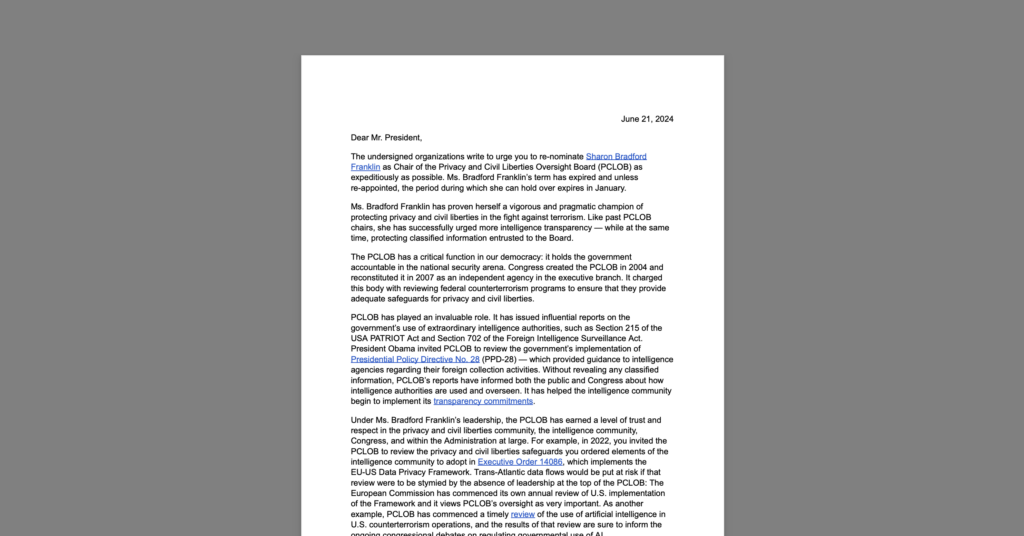CDT Files FOIA Lawsuit Demanding Information on How DHS Looks at Social Media for Immigration and Naturalization
Last week, the Center for Democracy & Technology (CDT) sued the Department of Homeland Security (DHS) for failure to respond to Freedom of Information Act (FOIA) requests about how the Administration monitors and uses social media posts in its immigration and naturalization work.
Portions of the text of that lawsuit are below, and the full lawsuit can be read here:
***
CDT is an organization dedicated to promoting and protecting free expression on the Internet. It brings this action under the Freedom of Information Act (FOIA), 5 U.S.C. § 552, et seq., to enjoin the United States Customs and Border Protection (CB”) and the United States Citizenship and Immigration Services (USCIS), components of the United States Department of Homeland Security (DHS), from continuing to improperly withhold agency records responsive to FOIA requests made by CDT. The underlying FOIA requests sought records regarding Defendants’ policies and practices regarding the monitoring of social media for immigration and naturalization purposes.
Based on the limited information about these practices that is publicly available, CDT is concerned that these practices are of dubious constitutionality, and may have the effect of chilling of Americans’ speech on social media platforms. In particular, social media surveillance like the practices at issue introduces significant civil liberties concerns. Communication on social media is highly susceptible to misinterpretation because it is, like most human interaction, idiosyncratic. Deciphering the meaning of statements is difficult without an intimate understanding of the context in which they are made. In the context of immigrants in particular, social media content commonly contains foreign languages, further increasing the complexity of analyzing this information. Government monitoring of social media opens the door to discriminatory pretextual denials of benefits—in fact, DHS has acknowledged these risks, noting that “data may be taken out of context,” and that social media surveillance may lead to “an erroneous adverse effect on an individual, such as denial of an immigration benefit.”
CDT made the FOIA requests to investigate and better understand these practices. But the government has stonewalled CDT’s FOIA requests. According, CDT brings this action to enforce its and the public’s right to receive information about the practices.


